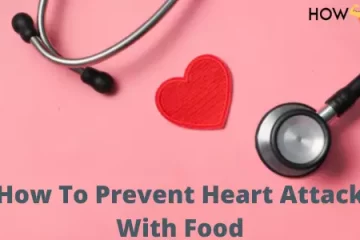Heart health is crucial to our overall well-being, yet it often receives insufficient attention until calamity strikes. Recognizing the manifestations of a heart attack can be life-saving. This discourse will explore the essential heart attack symptoms you must know, equipping you with the acumen to act swiftly and judiciously.
Understanding Heart Attacks
What is a Heart Attack?
A heart attack transpires when the blood flow to the heart is impeded, typically by an accumulation of fat, cholesterol, and other substances. This obstruction can damage or annihilate part of the heart muscle, precipitating severe health complications or death if not treated expeditiously.
Causes of Heart Attacks
Heart attacks predominantly result from coronary artery disease (CAD), wherein the arteries supplying blood to the heart become narrow or obstructed. Other causes encompass severe spasms or sudden contractions of the coronary artery, severing the blood flow to the heart muscle.
Common Symptoms of Heart Attacks
Chest Pain or Discomfort
The quintessential symptom of a heart attack is chest pain or discomfort. This pain may manifest as pressure, squeezing, fullness, or pain in the heart’s center. It often endures for more than a few minutes or may subside and reoccur.
Shortness of Breath
Shortness of breath can emerge with or without chest pain. You might feel as though you cannot catch your breath or feel uncharacteristically winded from simple exertions.
Pain in Other Parts of the Body
Heart attack pain can radiate beyond the chest to other regions such as the arms, back, neck, jaw, or stomach. This pain may be intermittent or constant.
Less Common Symptoms
Nausea and Vomiting
Feeling nauseous or vomiting is a less typical symptom but can occur, especially in women. This can sometimes be misinterpreted as a gastrointestinal issue rather than a cardiac problem.
Cold Sweats
Breaking out in a cold sweat without any apparent reason can be indicative of a heart attack. This type of sweat differs from the one induced by physical activity or heat.
Lightheadedness or Dizziness
Feeling lightheaded or dizzy can be another harbinger, particularly when accompanied by chest pain or shortness of breath. This could signify that your heart is not pumping sufficient blood to the rest of your body.
Symptoms in Different Demographics
Symptoms in Women
Women are more inclined to experience atypical symptoms such as nausea, vomiting, back or jaw pain, and shortness of breath. They may not always exhibit the classic chest pain.
Symptoms in Men
Men are more likely to endure the classic symptom of intense chest pain. However, they too can manifest other symptoms like shortness of breath and pain in other body parts.
Symptoms in Older Adults
Older adults may present with milder symptoms or none at all. They might simply feel fatigued or weak, which can easily be misconstrued as other less severe conditions.
Symptoms in Diabetics
Individuals with diabetes may have diminished pain sensation, known as diabetic neuropathy, which can result in a heart attack without significant pain, known as a silent heart attack.
Silent Heart Attacks
What is a Silent Heart Attack?
A silent heart attack is one that exhibits few, if any, noticeable symptoms. It is often discovered only through tests conducted for another reason.
How to Recognize Silent Heart Attacks
Silent heart attacks can be elusive. They might manifest as slight discomfort, shortness of breath, or mild flu-like symptoms. Regular check-ups and being vigilant about subtle changes in your body are imperative.
When to Seek Medical Help
Importance of Timely Medical Intervention
If you suspect a heart attack, seeking immediate medical help is paramount. The sooner you receive treatment, the less damage to your heart and the better your chances of survival.
What to Do if You Suspect a Heart Attack
If you believe you or someone else is experiencing a heart attack, call emergency services immediately. Do not drive yourself to the hospital. While awaiting assistance, chew an aspirin if not allergic, as it can help thin the blood.
Risk Factors for Heart Attacks
Lifestyle Factors
Factors such as smoking, poor diet, lack of exercise, and excessive alcohol consumption can augment the risk of a heart attack.
Medical Conditions
Conditions such as high blood pressure, high cholesterol, obesity, and diabetes also elevate the risk.
Prevention Strategies
Healthy Diet
Consuming a balanced diet abundant in fruits, vegetables, whole grains, and lean proteins can help mitigate heart attack risk.
Regular Exercise
Regular physical activity fortifies the heart and enhances circulation. Aim for at least 30 minutes of moderate exercise on most days of the week.
Avoiding Smoking and Excessive Alcohol
Quitting smoking and limiting alcohol intake can significantly reduce your risk of a heart attack.
Role of Regular Check-Ups
Importance of Monitoring Heart Health
Regular check-ups can aid in the early detection of heart disease. Monitoring blood pressure, cholesterol levels, and other heart health indicators is crucial.
Recommended Medical Tests
Tests such as electrocardiograms (EKG), stress tests, and blood tests can offer valuable insights into your heart health and help avert heart attacks.
Living with Heart Disease
Managing Heart Disease
Living with heart disease necessitates taking medications, making lifestyle adjustments, and meticulously following your doctor’s advice to manage the condition effectively.
Support Systems and Resources
Support groups, counseling, and educational resources can assist individuals and their families in coping with heart disease.
Myths and Facts about Heart Attacks
Common Misconceptions
One prevalent myth is that heart attacks solely afflict older adults. In reality, they can occur at any age, particularly with unhealthy lifestyle choices.
The Truth About Heart Attacks
Understanding the facts about heart attacks can dispel myths and encourage proactive heart health management.
Personal Stories
Real-life Accounts of Heart Attack Survivors
Hearing from heart attack survivors can be both enlightening and inspiring. Their experiences underscore the importance of recognizing symptoms and seeking prompt treatment.
Lessons Learned
Survivors often share invaluable lessons on how to lead a healthier lifestyle post-heart attack, emphasizing the importance of diet, exercise, and regular medical check-ups.
Conclusion
Recognizing the symptoms of a heart attack and understanding the risk factors and prevention strategies are vital for maintaining heart health. Stay informed, be proactive, and take care of your heart—it’s the only one you’ve got.
FAQs
What are the first signs of a heart attack?
The initial signs often encompass chest pain or discomfort, shortness of breath, and pain radiating to other parts of the body.
Can a heart attack be mild?
Yes, heart attacks can vary in severity. Some may be mild with minimal damage, while others can be severe and life-threatening.
How long can you have symptoms before a heart attack?
Symptoms can commence hours, days, or even weeks before a heart attack. Persistent symptoms should be evaluated by a healthcare professional.
Are heart attack symptoms different in men and women?
Yes, women are more likely to experience atypical symptoms such as nausea and back pain, while men more commonly have chest pain.




